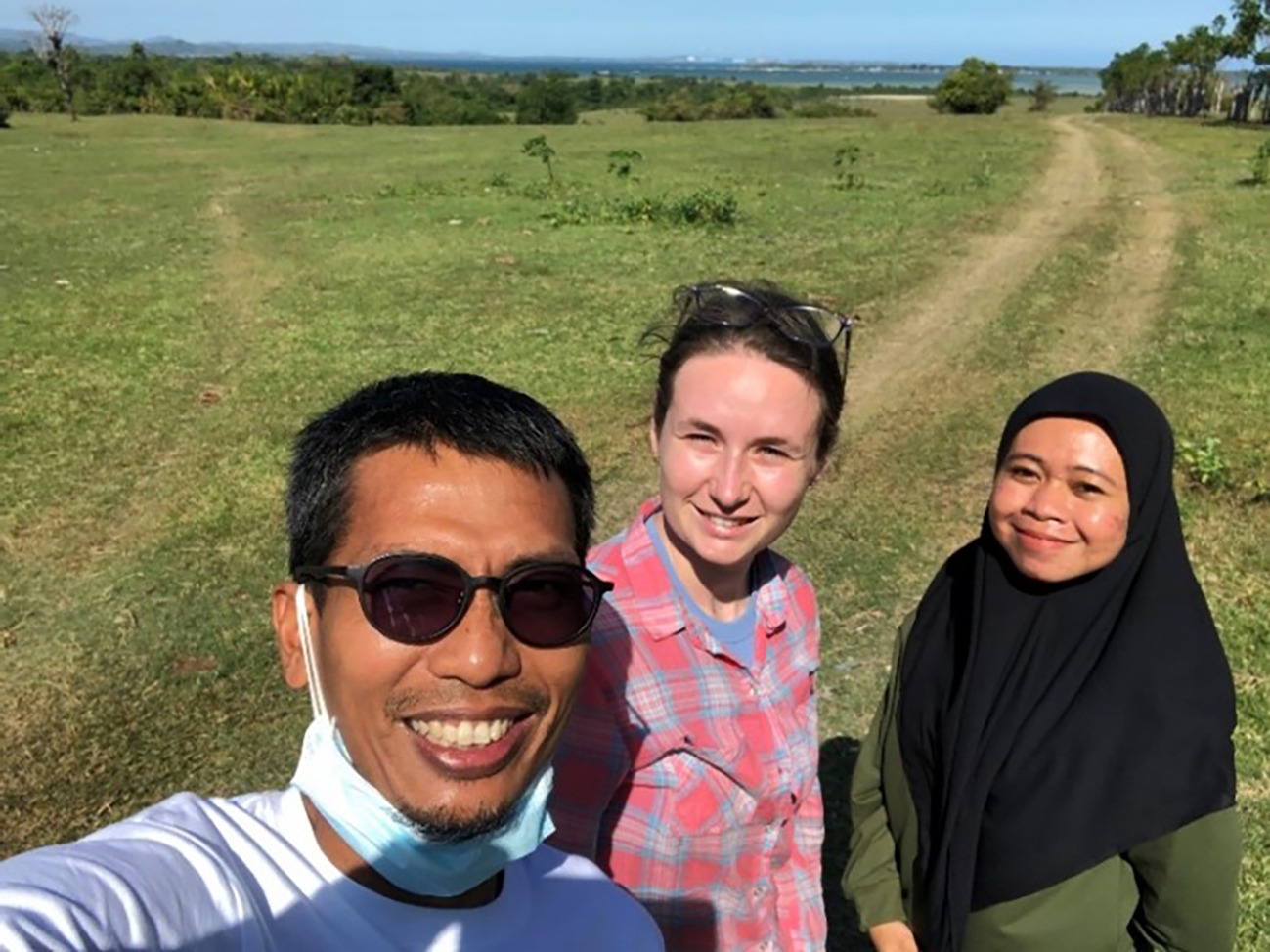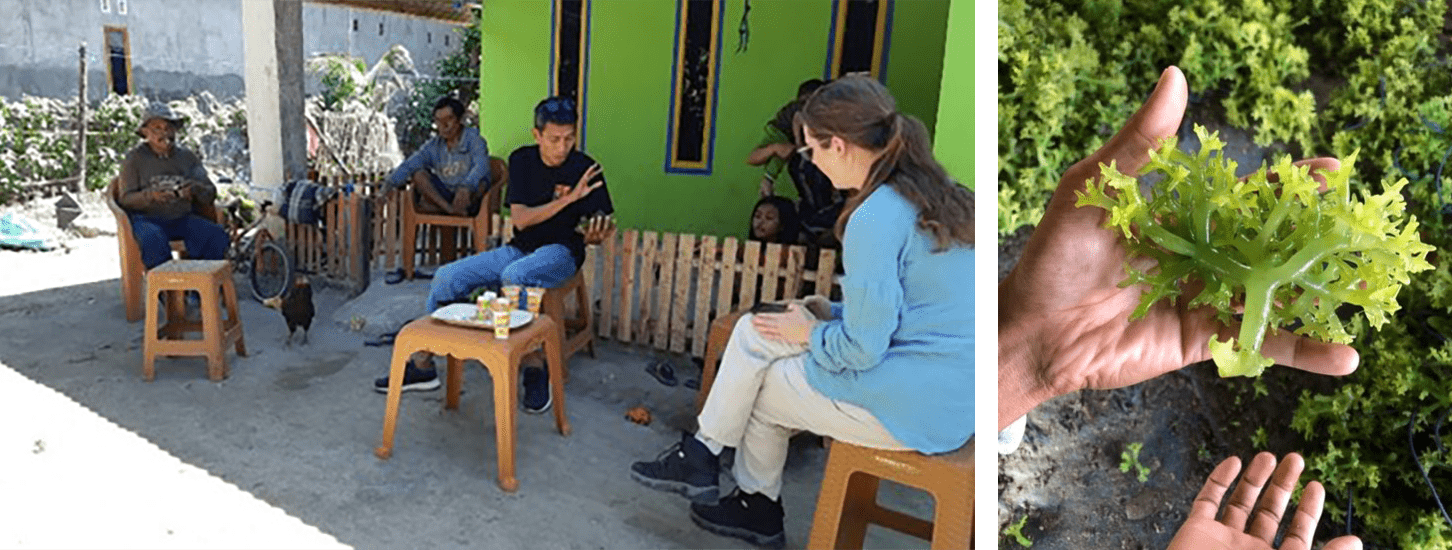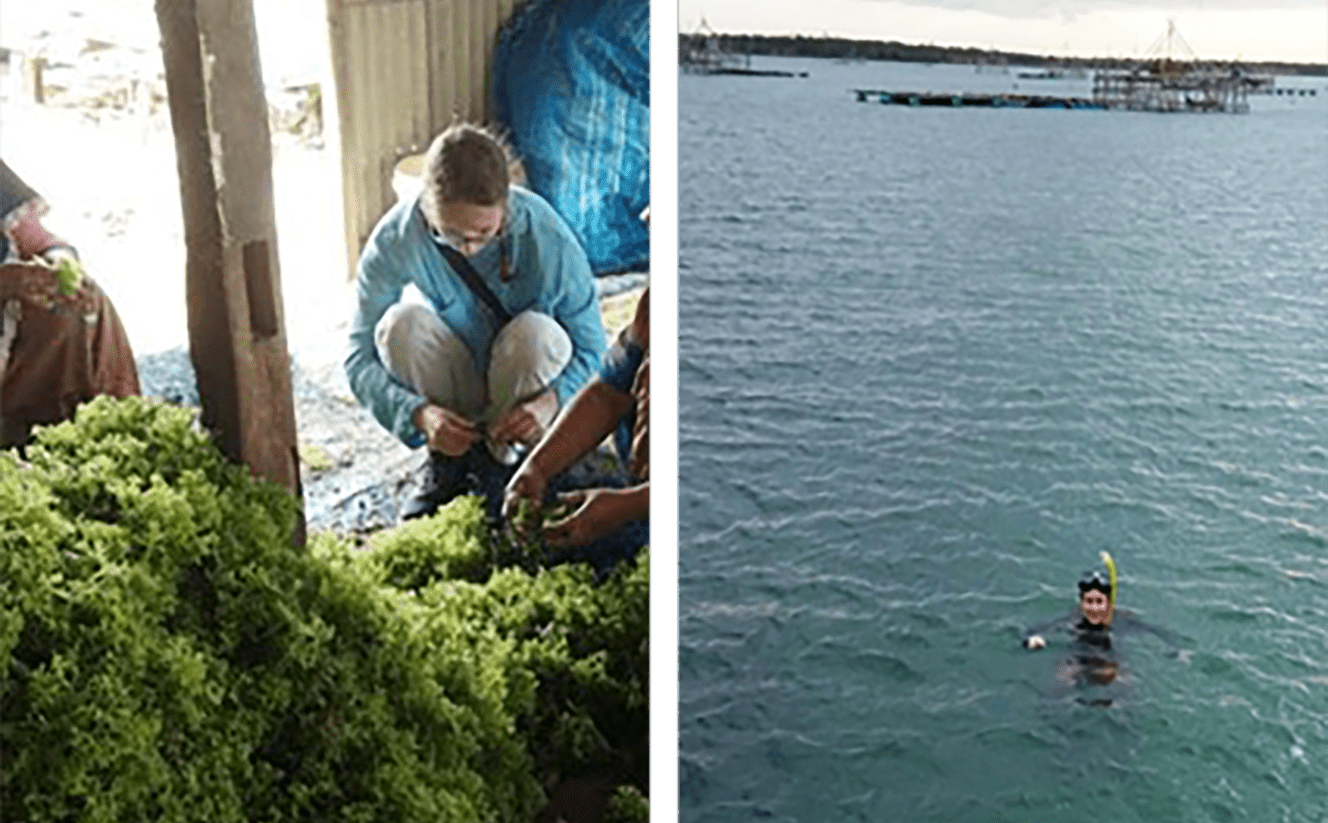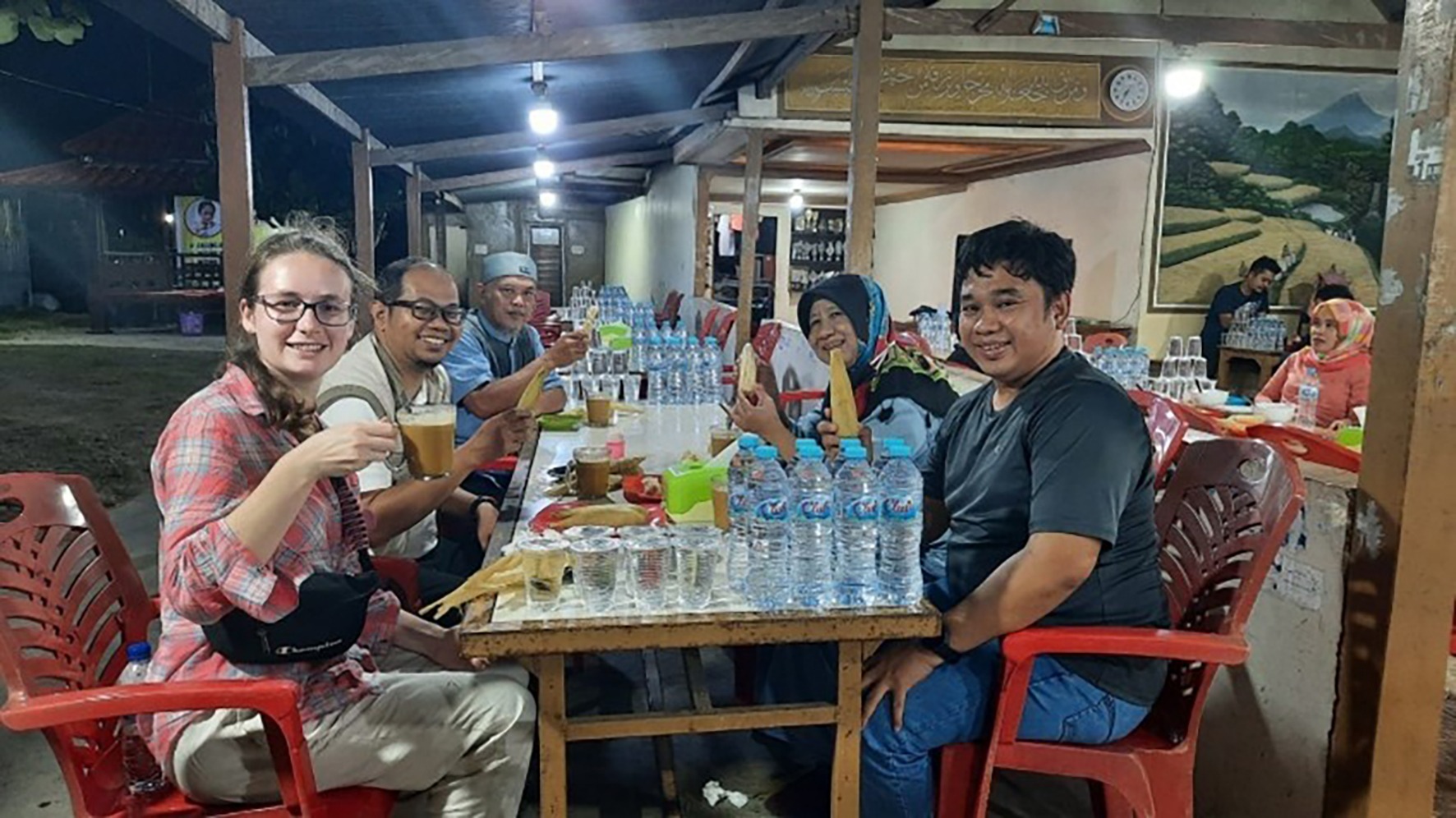

Being on the ground for a greater understanding of seaweed farmers’ lives
December 22, 2022

One way the Crawford Fund supports and encourages the next generation of Australians in study, careers and volunteering in international agricultural research is through our highly sought after Student Awards, funded by our State and Territory Committees and made possible by organisations including ACIAR, international centres, Australian and overseas universities and NGOs.
In 2022, we announced 14 tertiary students had won awards to gain international agricultural research experience and expertise. With the resumption of global travel, The Crawford Fund is excited to see many of the young NextGen Student Awardees travelling overseas to undertake projects. Madeleine Grist, an honours student at the University of Queensland recently completed her student award research in Indonesia and shares her experience below.
And remember, our 2023 student awards are now open! Applications close in May 2023.
The Crawford Fund Student Award enabled Madeleine Grist from the University of Queensland to visit Takalar, South Sulawesi, Indonesia, which is the subject location of her honours thesis.
“The award allowed me to gain greater context for my research, by learning from researchers in the field about how they gather the best information for the project from farmers. This is something I would not have been able to do otherwise,” said Madeleine.
According to Madeleine she not only gained a greater understanding and appreciation of Takalar seaweed farmers’ lives and how seaweed farming is changing their lives for the better, she also learned how her research could be better presented to make it more relevant to the farmers’ lives.
“I gained a greater understanding of the importance of involving the farmers in development discussions and research. Farmers want more research done in this area, but feel that initiatives, such as the government projects, are useful in theory, but do not include their practical knowledge developed over many years of farming seaweed,” she said.
“I learnt a lot from the Junior Scientific Officers (JSOs) about getting involved in the community. They build relationships with the farmers and are able to get more accurate data back to the researchers and convey to researchers what the farmers want and believe the industry needs to develop,” she said.

Madeleine reported that the Indonesian seaweed industry faces significant challenges such as an increased prevalence of disease, epiphyte and pest infestations, and loss of seedling quality.
The industry in Indonesia is made up of approximately one million smallholder farmers and their households, who earn profits around USD$2000 annually. These farmers mostly live in rural coastal areas and are often constrained by low levels of education, and lack of access to technology and personal capital. The main product from these seaweeds is the hydrocolloid carrageenan, which is the gelling agent used in a range of processed foods, cosmetics, and pharmaceuticals.
Most research in the field of seaweed farming focuses on the production cycle and how to improve industry productivity but miss a major precursory factor – that is how access to, and the quality of, seaweed seed impacts the quality and quantity of seaweed produced.

Madeleine’s research focuses on collecting this data to do a value chain analysis and determine areas in the value chain that could be improved. It also focuses on the seaweed seed value chain, quality characteristics of what makes a ‘good’ seed, and how new technologies, such as new propagation techniques and Facebook pages, are changing the way seed is produced and traded.
Seaweed seed cannot be dried or kept until peak season but must be continually cultivated.
“Farmers sell their seaweed at different times and continue growing it through the low season to try and maintain an income stream. There is a strong seed trading system in Takalar and neighboring regions meaning that if farmers lose their crop due to poor weather conditions, they will be able to secure seeds for the growing season. Capital is also readily available for farmers at the start of the season,” she said.
“There has been much hype around development of the Australian seaweed sector. As an emerging industry in Australia, there is much that can be learnt from the Indonesian red seaweed industry, as many of the same principles apply,” she said.

“I want to thank the Crawford Fund and I especially want to thank Imran Lapong and Risya Arsyi, the field research team, for looking after my trip and taking me with you to interviews. I have such great respect for the work they are doing in Takalar. I want to thank the people of Takalar for allowing me to visit their farms and homes to learn about their lives and farming activities. Thank you also to Irisyadi from Jasuda and Nana, her family, and Dilah from AIC for meeting with and hosting me while I was in Makassar,” she concluded.




 0
0